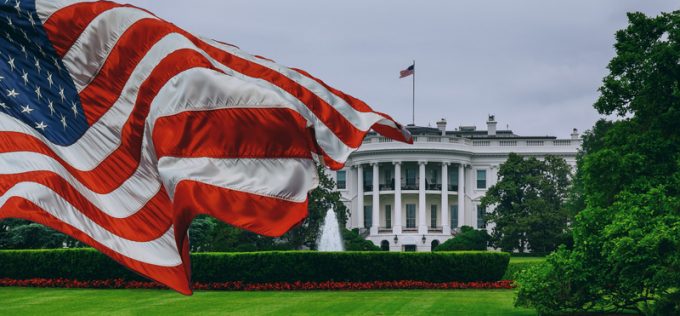East coast port strike threat prompts shippers to consider heading west instead
Cargo owners have been advised to make contingency plans for a strike at US east ...

Worried about possible failure of the current contract negotiations between labour and employer groups on the US west coast, several importer organisations have joined hands to ask the White House to intervene in the talks to ensure a constructive outcome before the deadline of 1 July.
The International Longshoremen and Warehouse Union (ILWU), which represents nearly 14,000 port workers in California, Oregon and Washington State, and the Pacific Maritime Association (PMA) on behalf of shipping lines and terminal operators at 29 west coast ports, have been discussing terms of a new contract to replace the agreement that expires on 1 July. Both sides had expressed their intention to bring the negotiations to a fruitful outcome, but the union called a 10-day suspension of the negotiations after a few days, citing lack of progress.
The ILWU and PMA have been back at the negotiating table since 1 June, but importers are getting nervous about a possible failure of the talks before the deadline and potential disruption in the aftermath. Previous contract discussions ended in serious disruptions and work stoppages of several weeks after negotiations failed to deliver agreements.
This has prompted the American Apparel & Footwear Association, the Retail Industry Leaders Association and the Travel Goods Association to jointly send a letter to the White House that urges the government to engage in the negotiations to ensure a productive outcome that avoids all disruption.
“There is less than a month before the contract expires and if both parties don’t remain at the table and the current negotiations don’t make meaningful progress toward an agreement, the consequences will exacerbate existing supply chain challenges. This will be to the detriment of the US economy, American importers and exporters, the tens of millions of workers they employ, and the hundreds of millions of consumers they serve,” they wrote.
“We urge you to encourage both parties to remain at the table until an agreement is finalized because even a relatively brief port slowdown or shutdown would compound current supply chain challenges and cause long-lasting damage to consumer confidence and American businesses.”
The ILWU and the PMA agreed before the start of the negotiations on a media black-out, but it has transpired that automation is one stumbling block in the talks. The PMA has pointed out that dockworkers’ wages on the west coast are approaching $195,000 a year, and the union countered with pointing to a collective profit of $150bn for the ocean shipping industry in 2021.
One observer pointed out that the 10-day work stoppage, after the 2002 contract negotiations failed to produce an agreement, cost the US economy billions of dollars.
Back then container lines were not making much money, but over the past two years they have been raking in record profits, and the near-term outlook indicates high rates in the coming months. According to the latest edition of the Port Tracker Report, which is issued on a monthly basis by the National Retail Federation (NRF) and maritime consultancy Hackett Associates, inbound retail container volumes will reach near-record levels in the coming months.
One of the reasons for this is the uncertainty over the west coast contract negotiations.
“We’re in for a busy summer at the ports,” stated Jonathan Gold, NRF vice-president for supply chain and customs policy. “Back-to-school supplies are already arriving, and holiday merchandise will be right behind them. And the big wild card is what will happen with west coast labour negotiations with the current contract set to expire on 1 July. We continue to encourage the parties to remain at the table until a deal is done, but some of the surge we’ve seen may be a safeguard against any problems that might arise.”
The NRF itself has called for constructive contract negotiations before. On 1 March it sent a letter to the heads of the ILWU and the PMA urging both sides to commence negotiations as soon as possible and commit to a constructive dialogue until a new contract is agreed upon.
Politicians have leaned on both sides to work towards a swift agreement. ILWU president Willie Adams had a meeting at the White House last October with president Biden, vice-president Harris and transportation secretary Buttigieg to discuss supply chain issues. On the eve of the start of negotiations in May, California senator Feinstein posted a letter to Mr Adams and PMA president James McKenna urging an early agreement, as disruptions would “exacerbate global supply chain disruption”.
The White House has made it clear it wants an early resolution, but held back on taking a more active part in the issue, but this may change. Last month labor secretary Marty Walsh told Bloomberg that the administration would not get involved “unless we have to”, signalling that it would step in if the two sides failed to come to a timely agreement.
The letter from the three retail groups asks the government to take action beyond the resolution of existing differences between PMA and ILWU. They want the administration, the ILWU and the PMA to use these negotiations to address issues like systemic operational challenges, infrastructure modernisation and transparency in data-sharing and end-to-end visibility.
“These important issues must be addressed to strengthen US competitiveness, to ensure our supply chains are fully prepared to support continued economic growth, and to mitigate potential disruptions in the future,” they wrote.
And what of the seafarers in all of this? Please sponsor The Loadstar Podcast host Mike King on his sea-to-sea hike to support their welfare.
Comment on this article